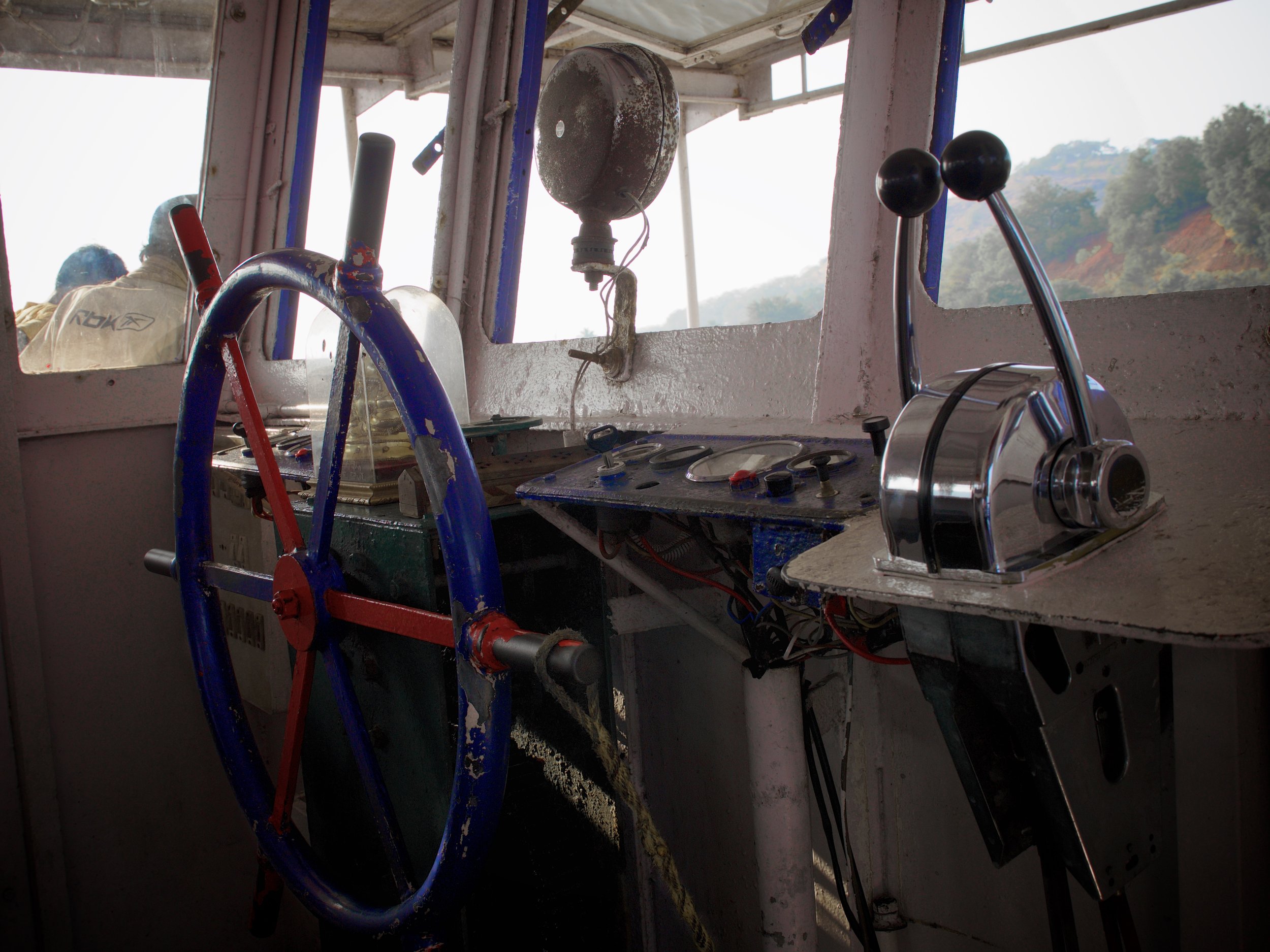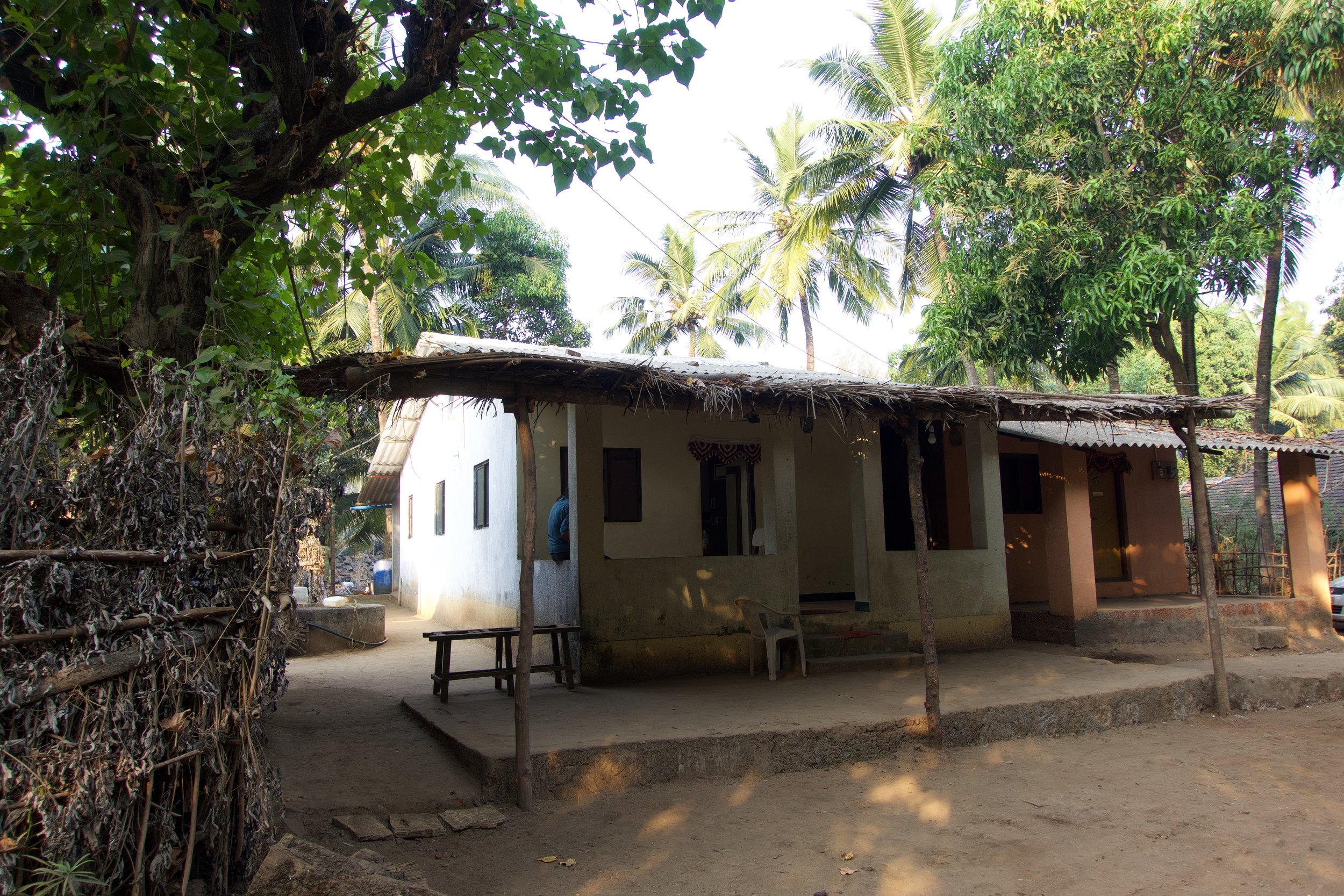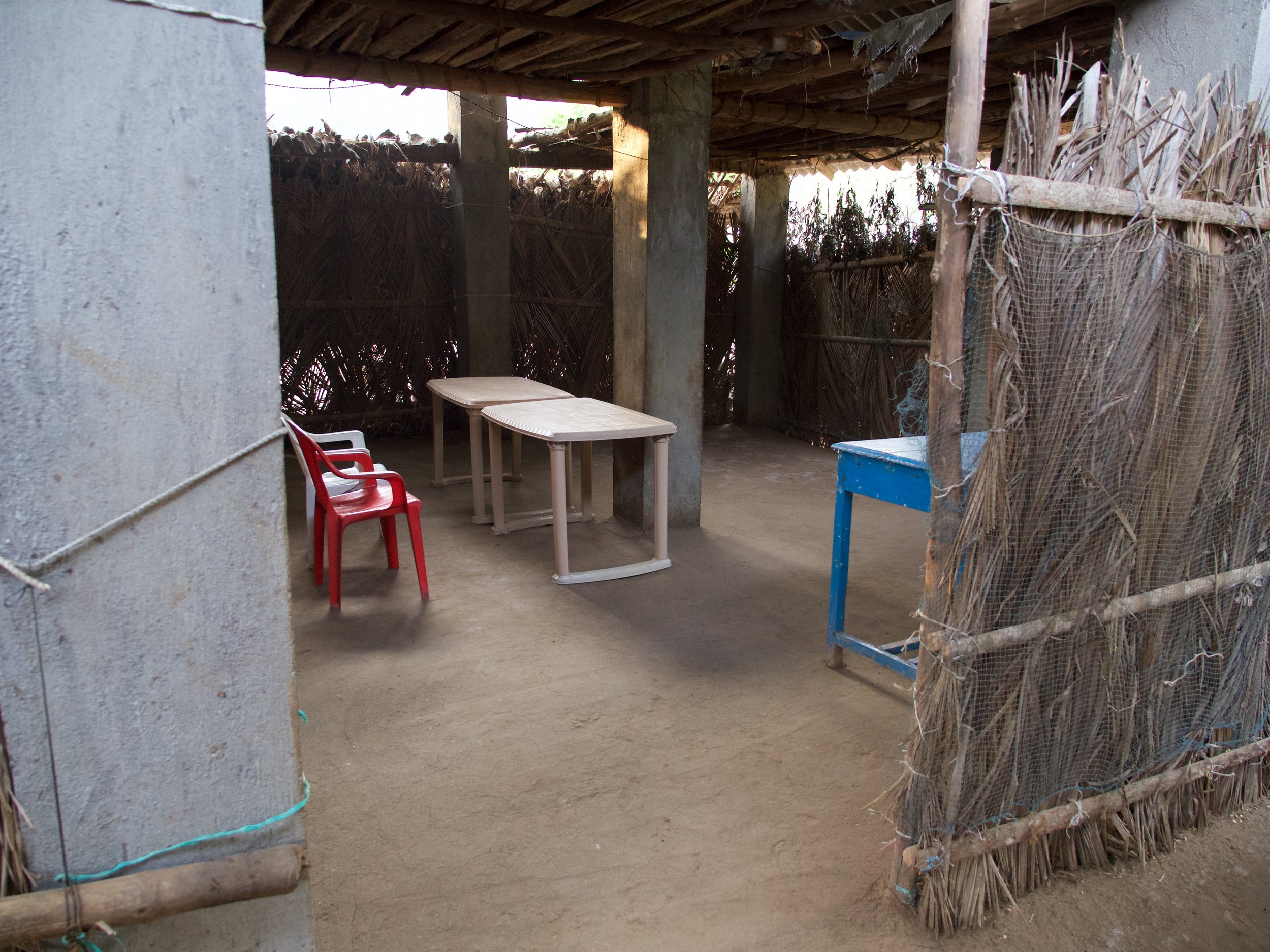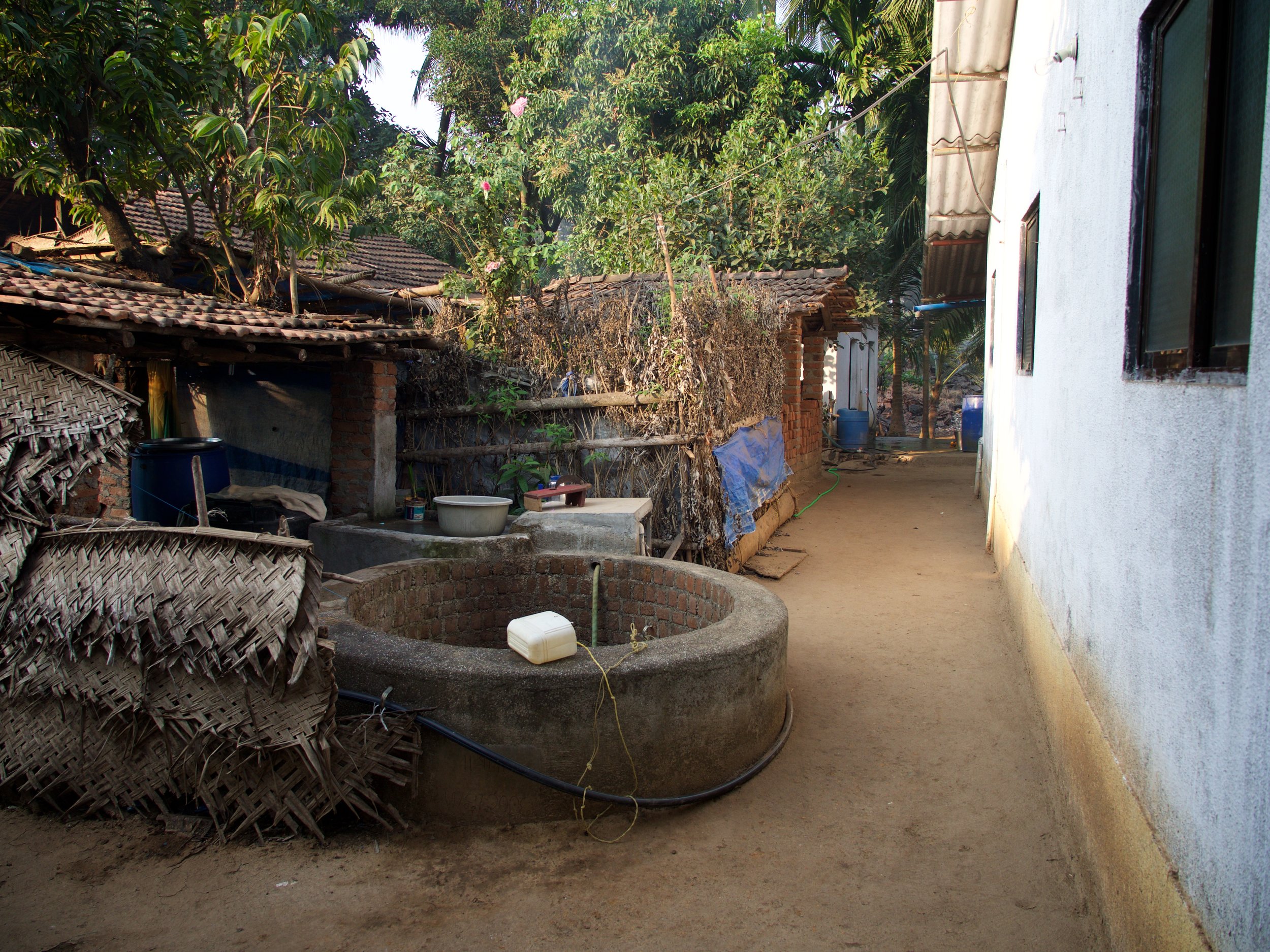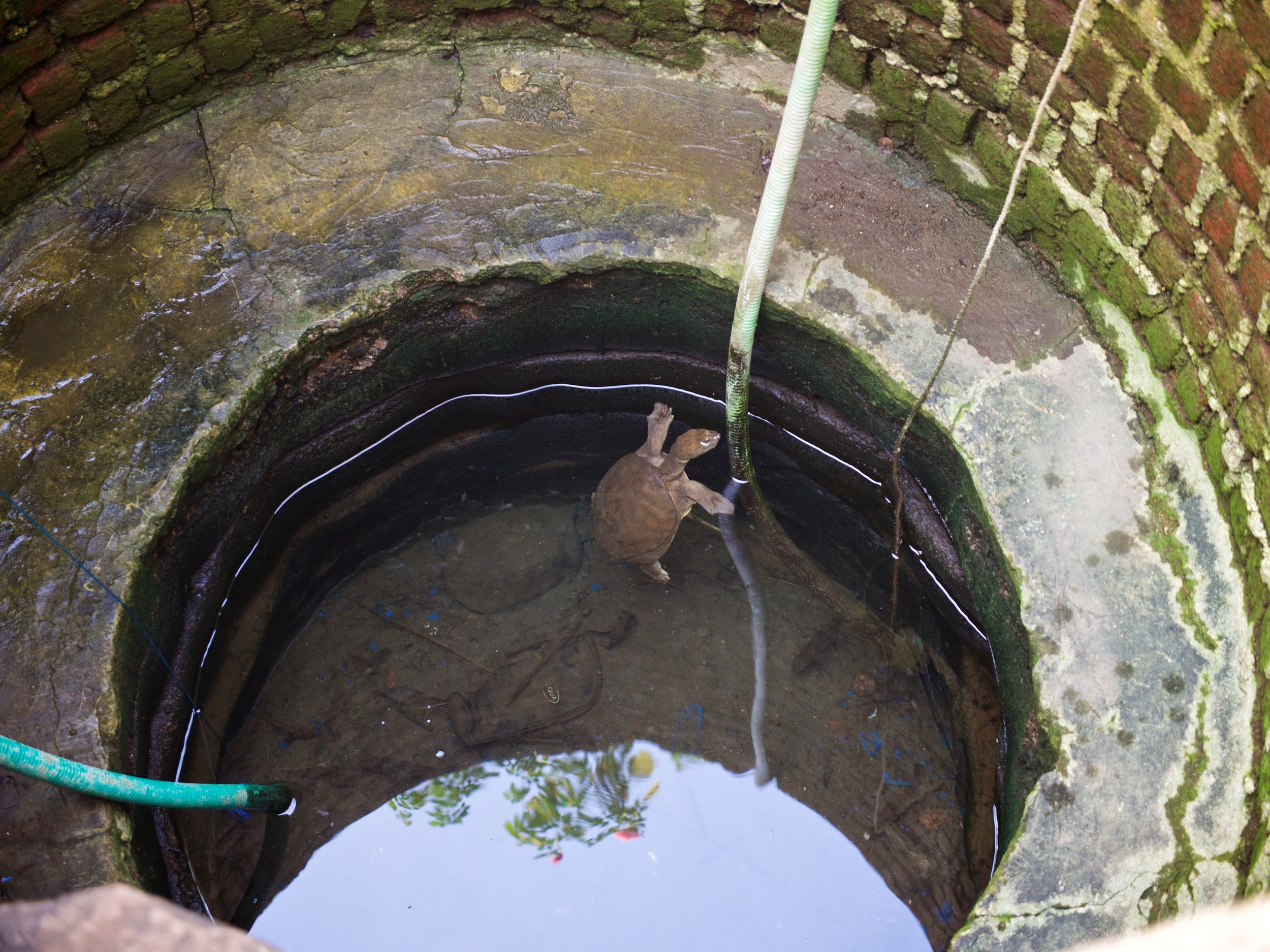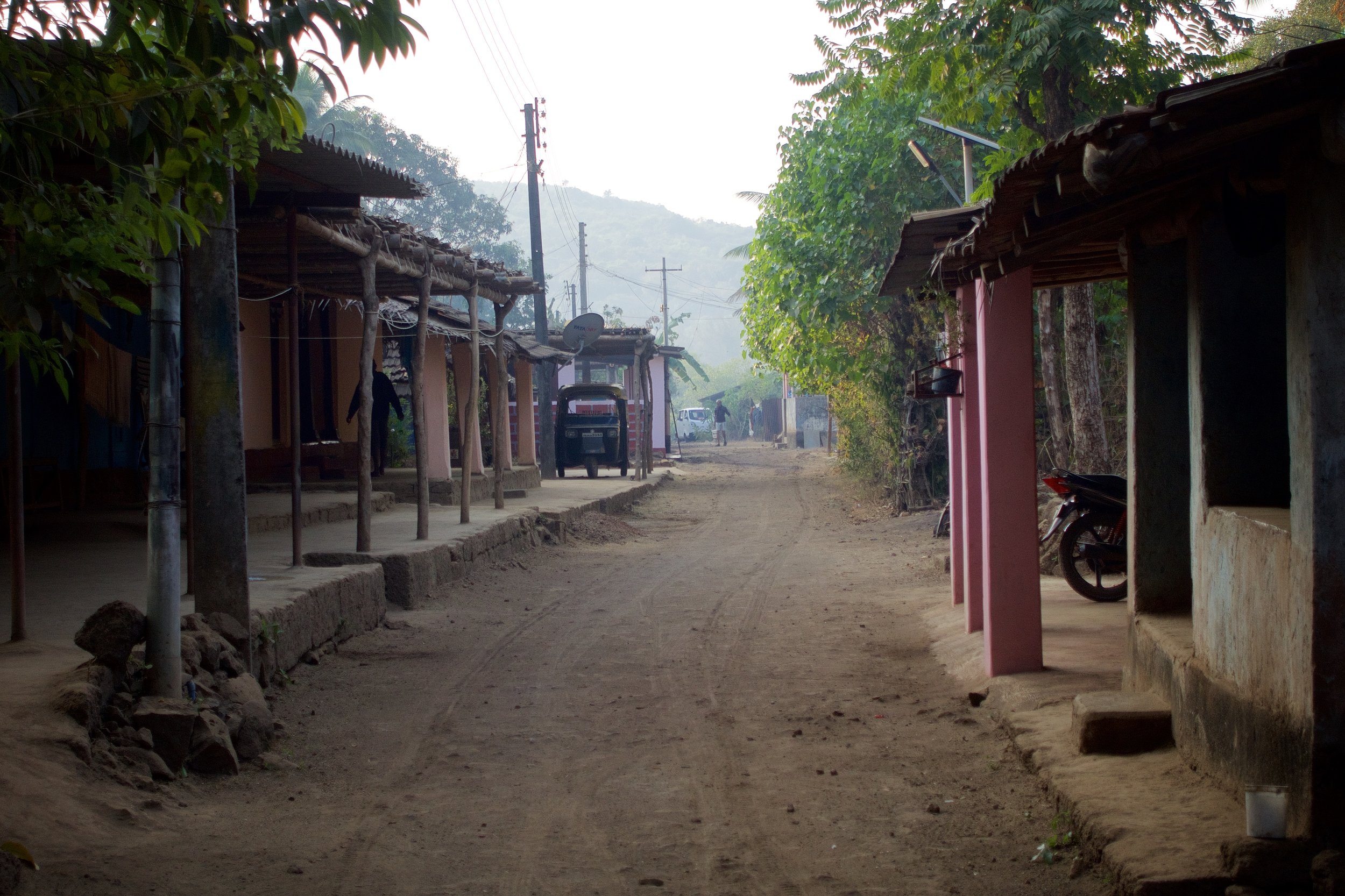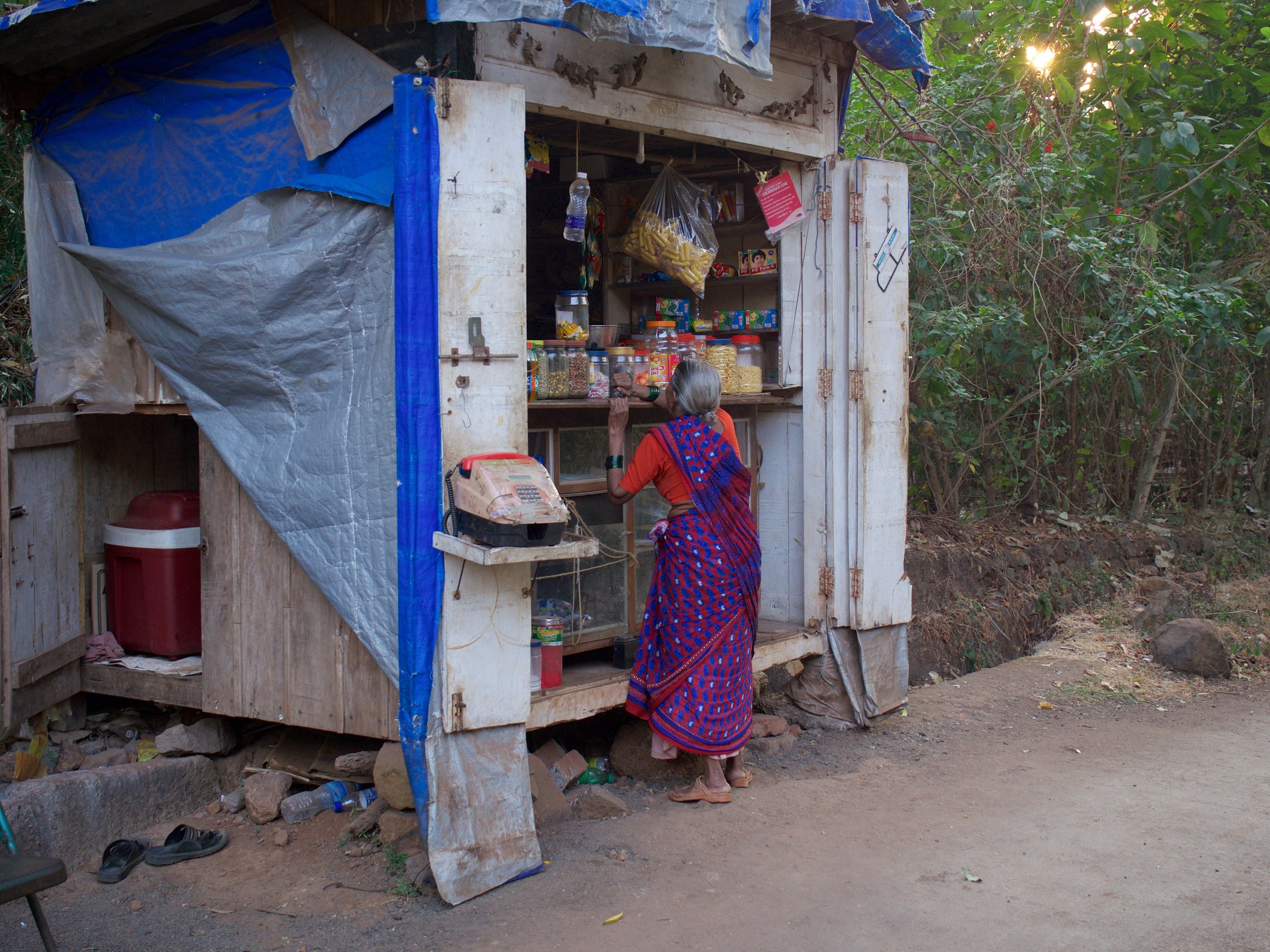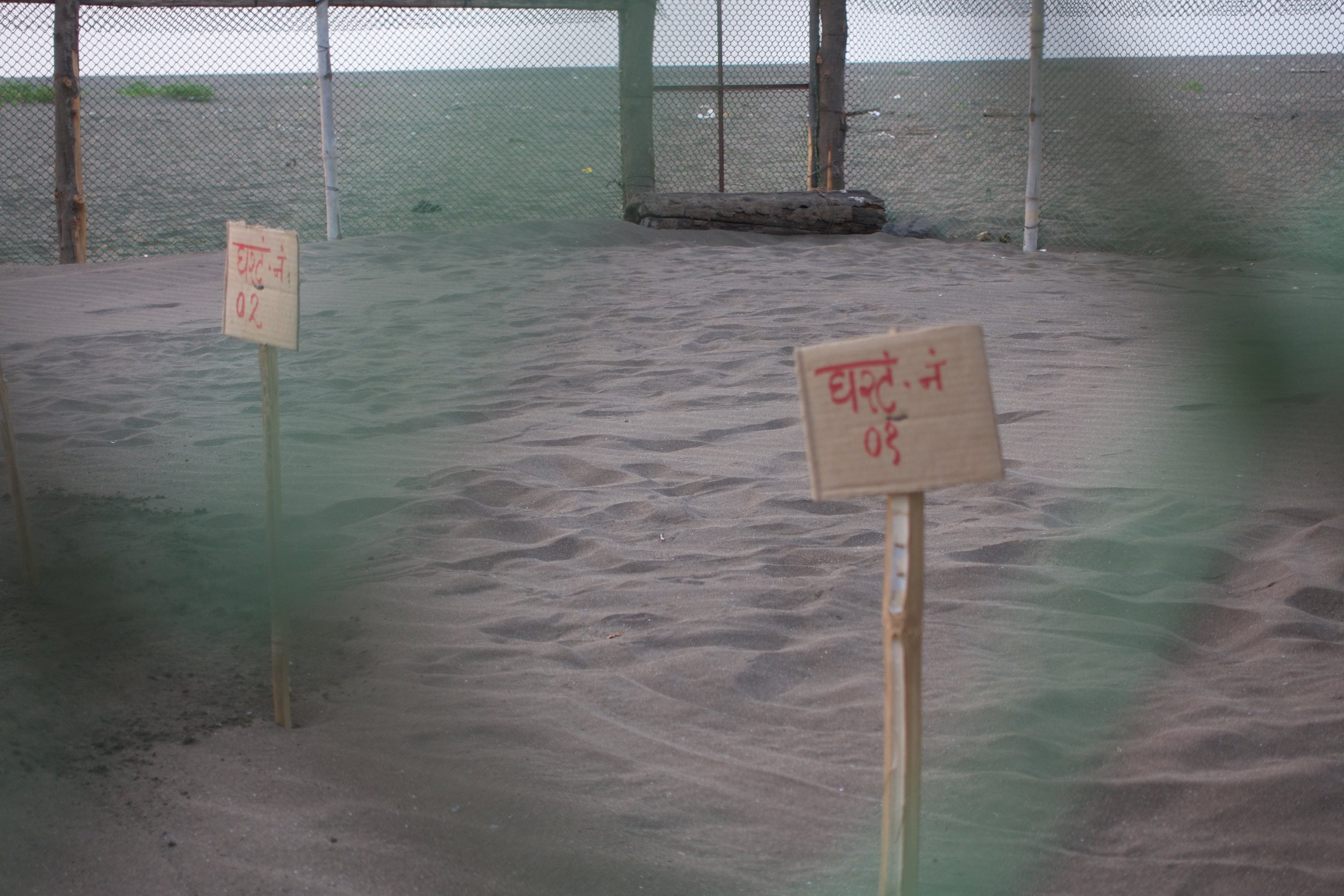After a long 6-hour drive from Pune, we finally reached the coast. The ocean breeze was cool and it felt good to walk out onto the expansive beach at Shrivardhan. From the fresh tire marks and the trash that was strewn about it was evident that this beach was a popular one to visit and the firmly packed sand enabled vehicles to easily drive on it and use as a shortcut to travel between communities.
But today, except for a single motorcyclist and a horse-drawn cart that crossed our path, the expansive beaches were practically deserted.
As we walked towards the water’s edge we traversed into the high tide zone, where the ocean left behind a mesmerizing two-tone ripple effect in the yellow-gold sandy coastline that extended far into the distance. This seemingly 'virgin' territory, free of human presence, was a drastic contrast to the upper beach area and was a welcome reminder of nature's powerful rejuvenating forces.
Turtles are known to return to their natal beaches and the Forest Department, who monitors this beach for turtle activity, have recorded 2 to 3 olive ridley turtle nests per year. Looking back at my footprints I pondered the turtle's nesting foray onto this beach and wondered whether these turtles were returning to their natal beaches for the first time after 18 or so years (I'm sure to a much-changed beach from when they departed as hatchlings).
Seeing this beautiful coastline, my hope is that city planners and decision-makers concerned about the welfare of their communities will never forget to take the wellbeing of the the environment into consideration as well.
ECO-TOURISM: SEA TURTLES, MANGOS AND STARGAZING
VELAS
From Shrivardhan beach we drove past Harihareshwar and a billboard that advertised water sport adventures. Bumper, banana and jetski rides we understood…but Dolphin Suffer? Hopefully THAT was just a spelling mistake!
The Veshvi Bagmandle Ferry Service ferried us across the Savitri river. It was a short, quiet crossing, and after disembarking we drove along a winding coastal road that lead us to our destination - a small coastal village called Velas, that was surrounded by a dense forest.
Rarely do foreigners visit Velas and only recently are Indian tourists venturing out there on a multi-day trip thanks to an eco-tourism program that integrates some of their unique natural resources: sea turtles, mangos, bird-watching and stargazing.
Here in Velas the residents have embraced the concept of eco-tourism, which is centered around an annual Turtle Festival. Attracting some 3,000 tourists a year, it has become the core attraction for new income opportunities for the villagers.
Instead of hotels, they offer homestays. Thirty-one homes are involved in the program and a single family can earn up to 1 Lakh per season (about US $1,400) - a convincing and worthwhile alternative to turtle egg poaching that only brings in Rs100 per nest (US $1.50).
The Turtle Festival website (http://velasturtlefestival.com) warns “Do not expect luxury. Velas is the place to enjoy down to earth and not luxury. Please be clear that all you are going get at Velas during Velas turtle festival is sound sleep in homestay accommodation, yummy homely food, pleasant atmosphere to refresh your senses, lots of local fruits / cuisines and lifetime memories of watching baby turtles start their journey.”
And that’s exactly what we got (except for watching baby turtles start their journey because it was too early in the season).
Nani, our hostess, showed us around our homestay house. Compared to some of the neighboring homes, it looked as though it had been recently built or renovated. It had 2 rooms, a shower and (western style) toilet. Thin mattresses were piled up in the larger of the two rooms that served as a dormitory, and there were fresh bed sheets available. Everything was immaculately clean - even the outdoor dining area that had a mud floor, walls made from palm leaves and a thatched roof.
Fresh water was pumped from a well and included it’s own “special” filtration system - a fresh water turtle! Water from the well is boiled for drinking, and bottled water is available at the local store - a small kiosk shack that sells a plethora of goods.
The home-cooked Maharashtran meals that Nani and her family provided were an absolute culinary delight, and I was amazed at how she and her family were able to create so many amazingly flavorful dishes with just a wood-fire to cook on in their very simple outdoor kitchen.
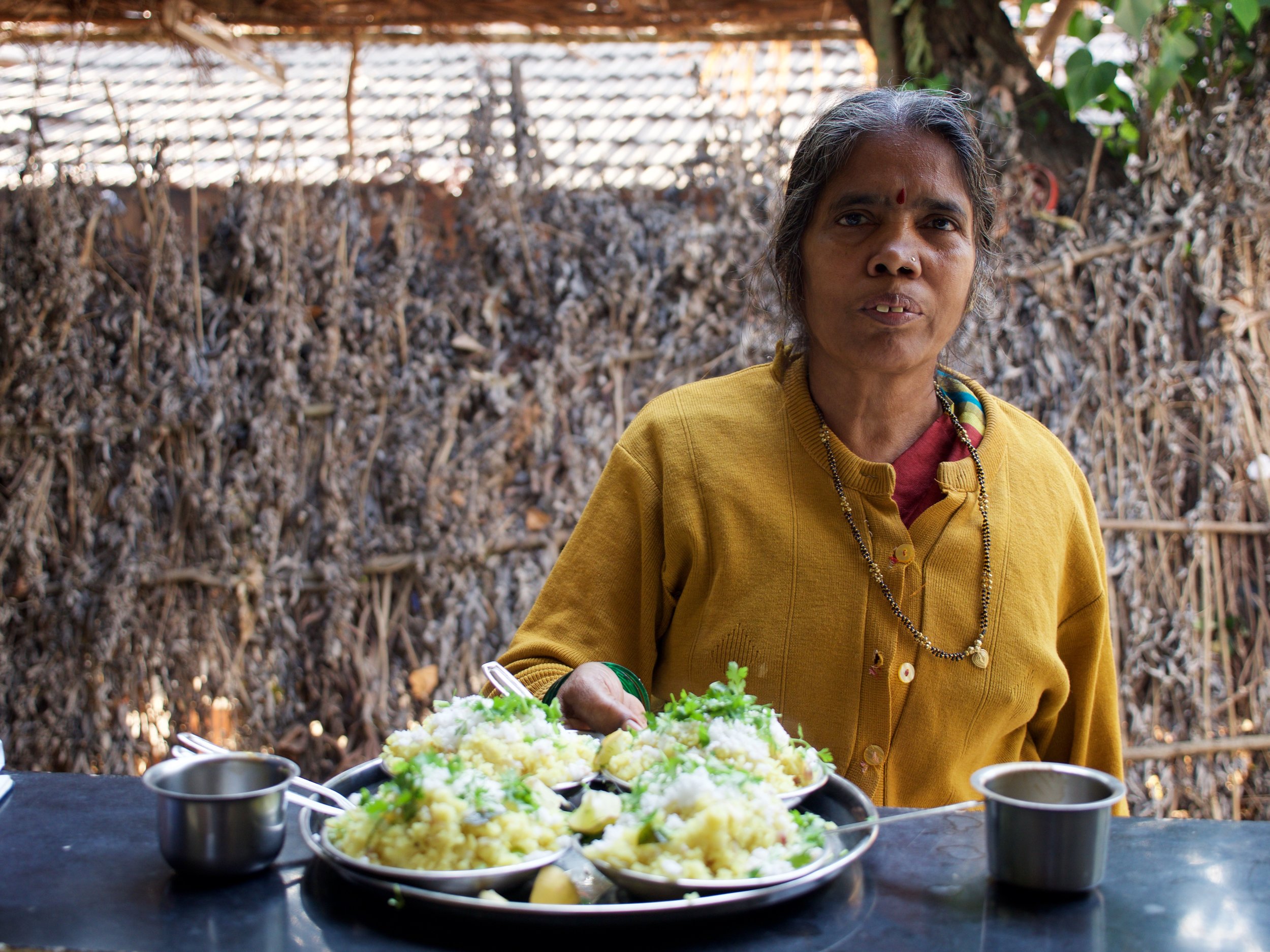
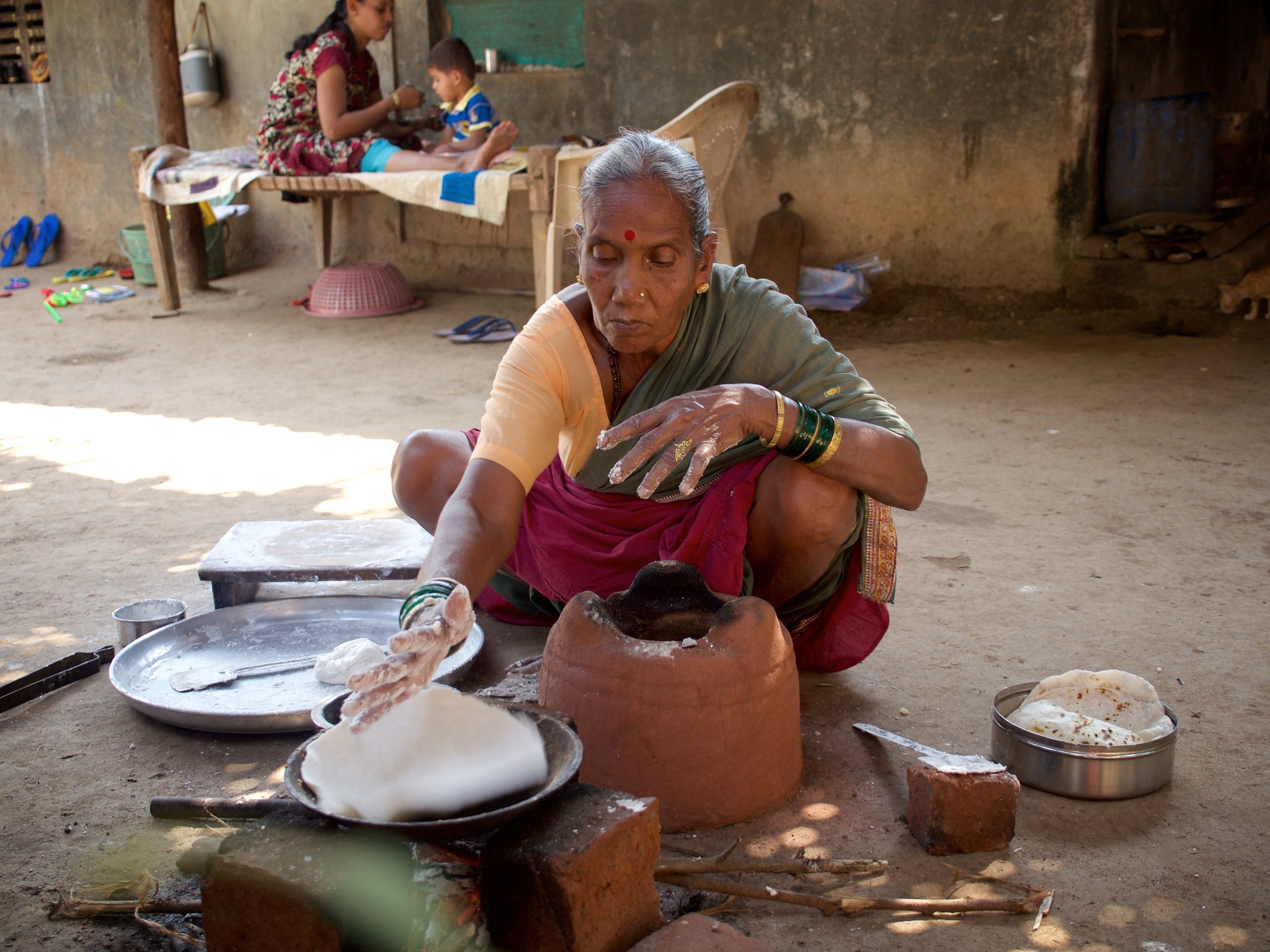
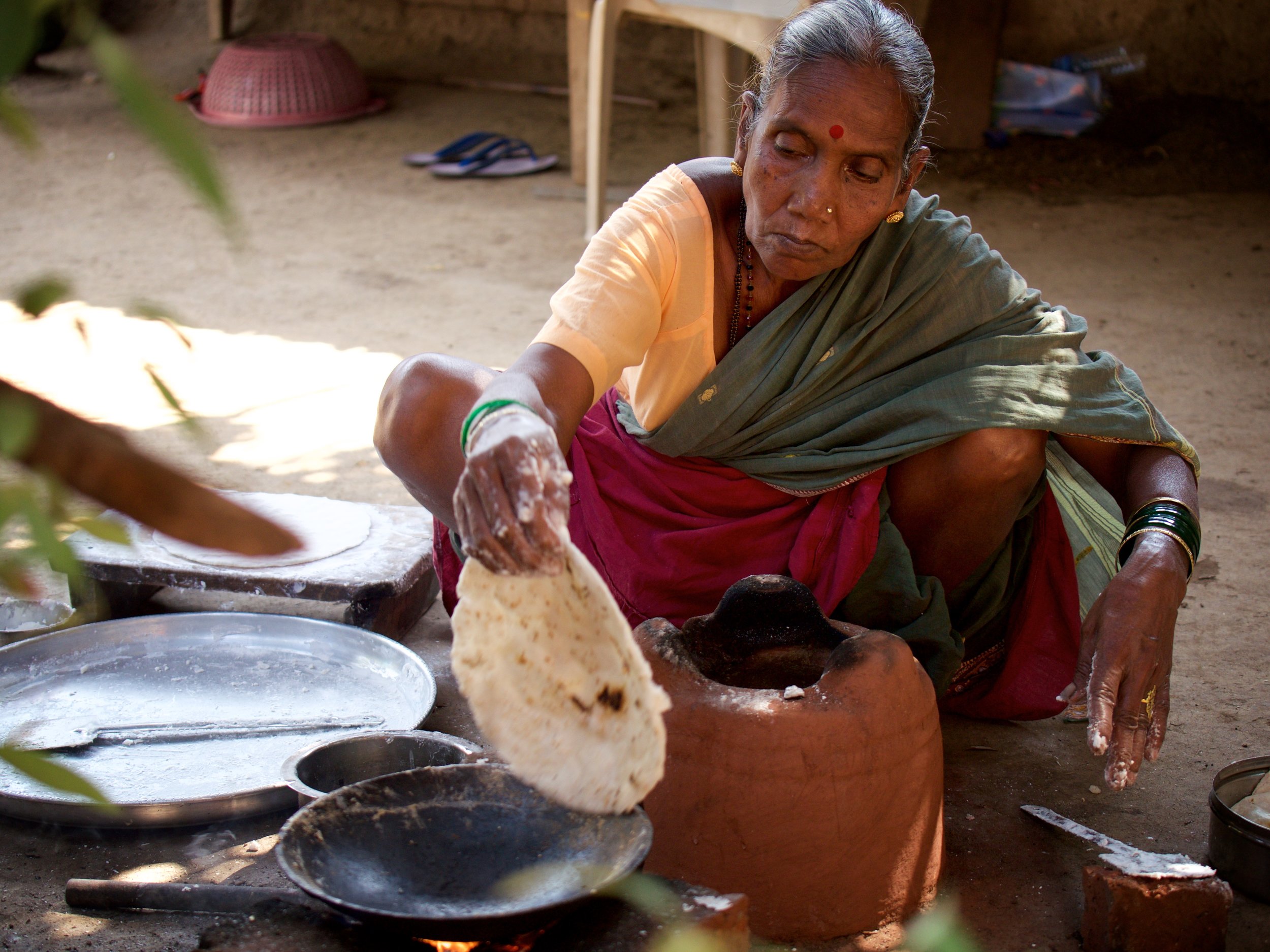
The village is surrounded by mango and coconut tree plantation and we witnessed rural life in an Indian village first hand: proud homeowners cleaned their homes and tended to their animals; impeccably dressed children in smart uniforms ran past us laughing and waving as they rushed to get to school on time; farmers carried huge stacks of dried grass on their head and men in mango trees trees sprayed insecticide on developing mango fruit in preparation for a bumper crop.
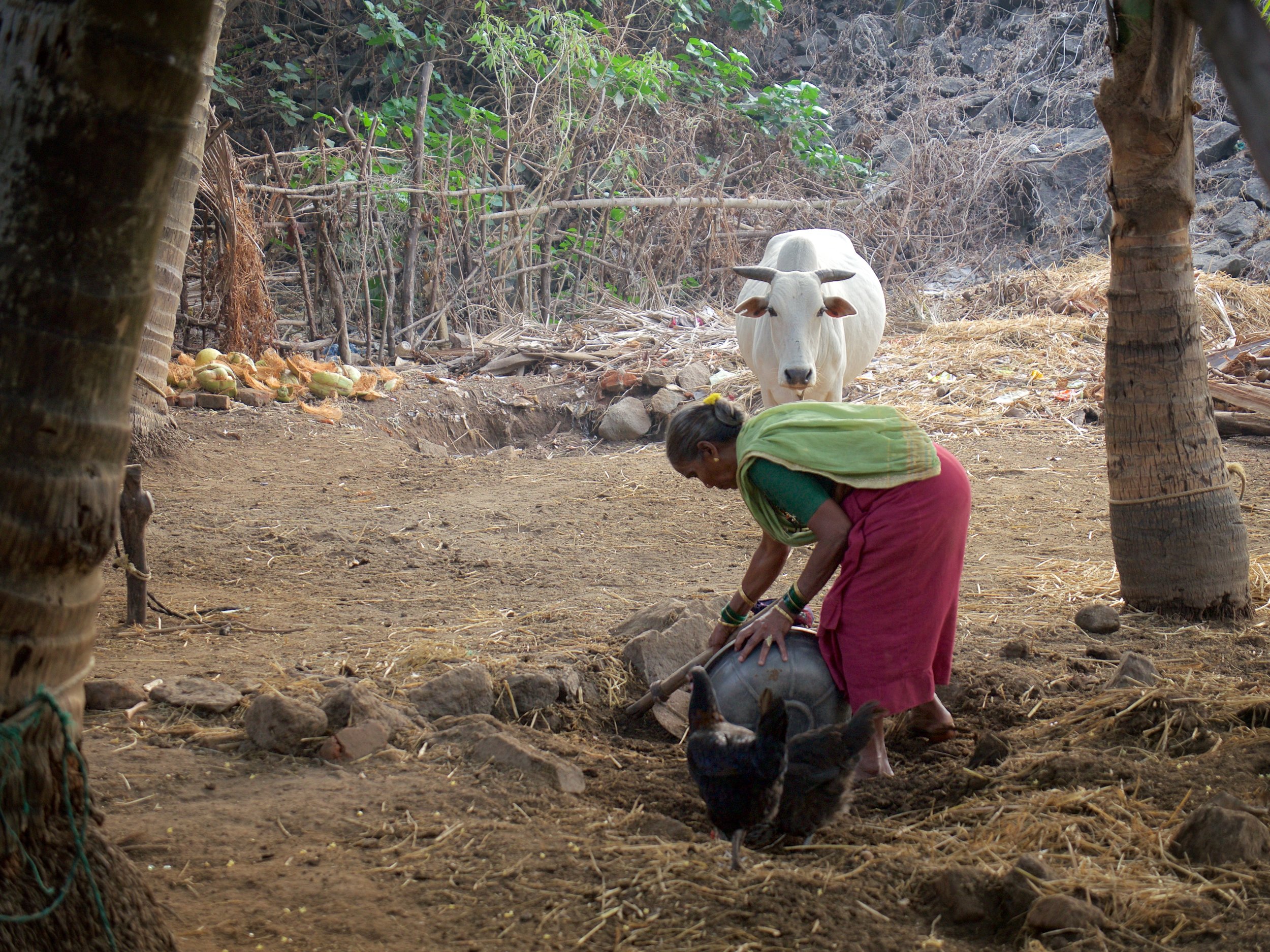
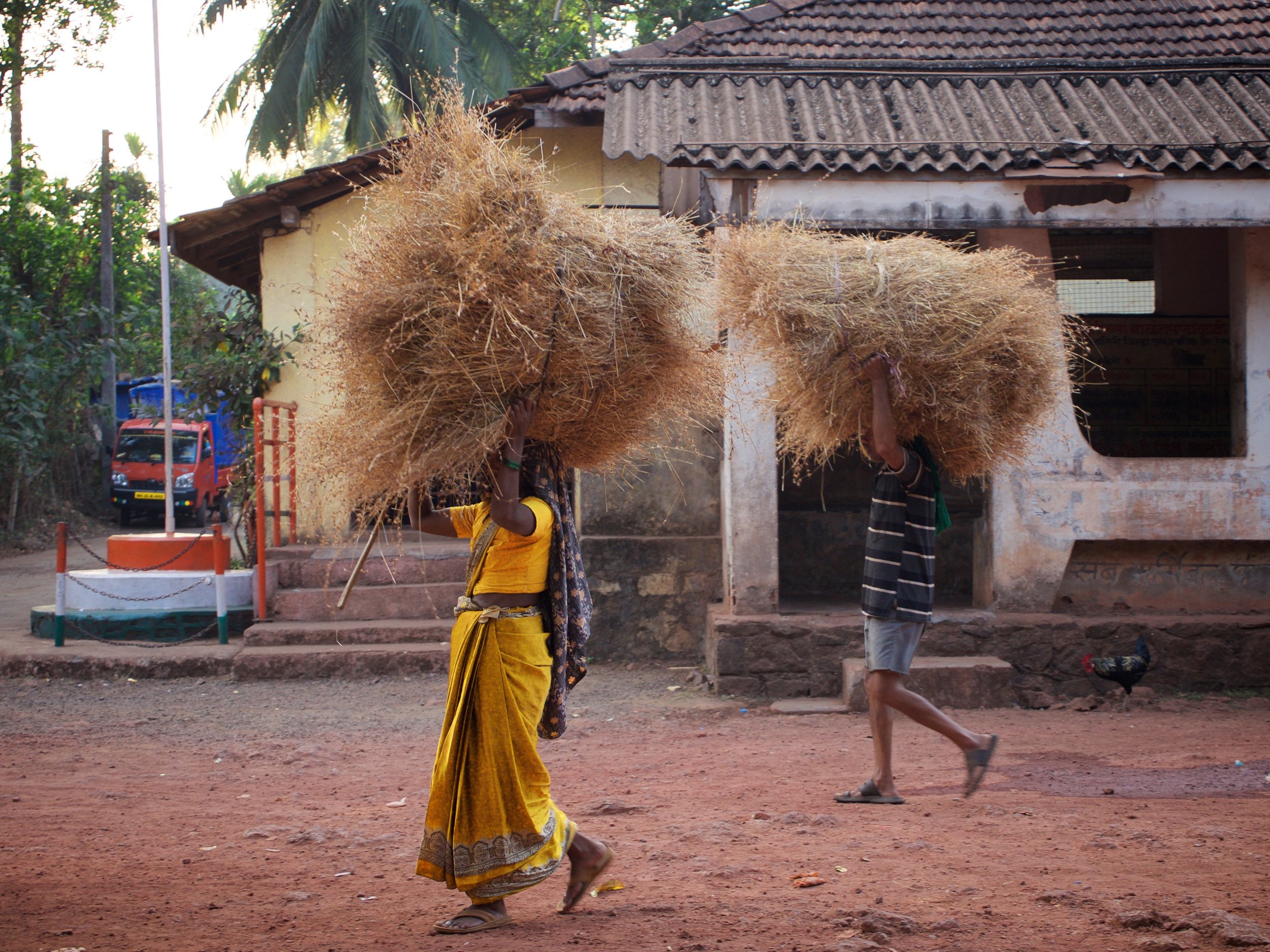
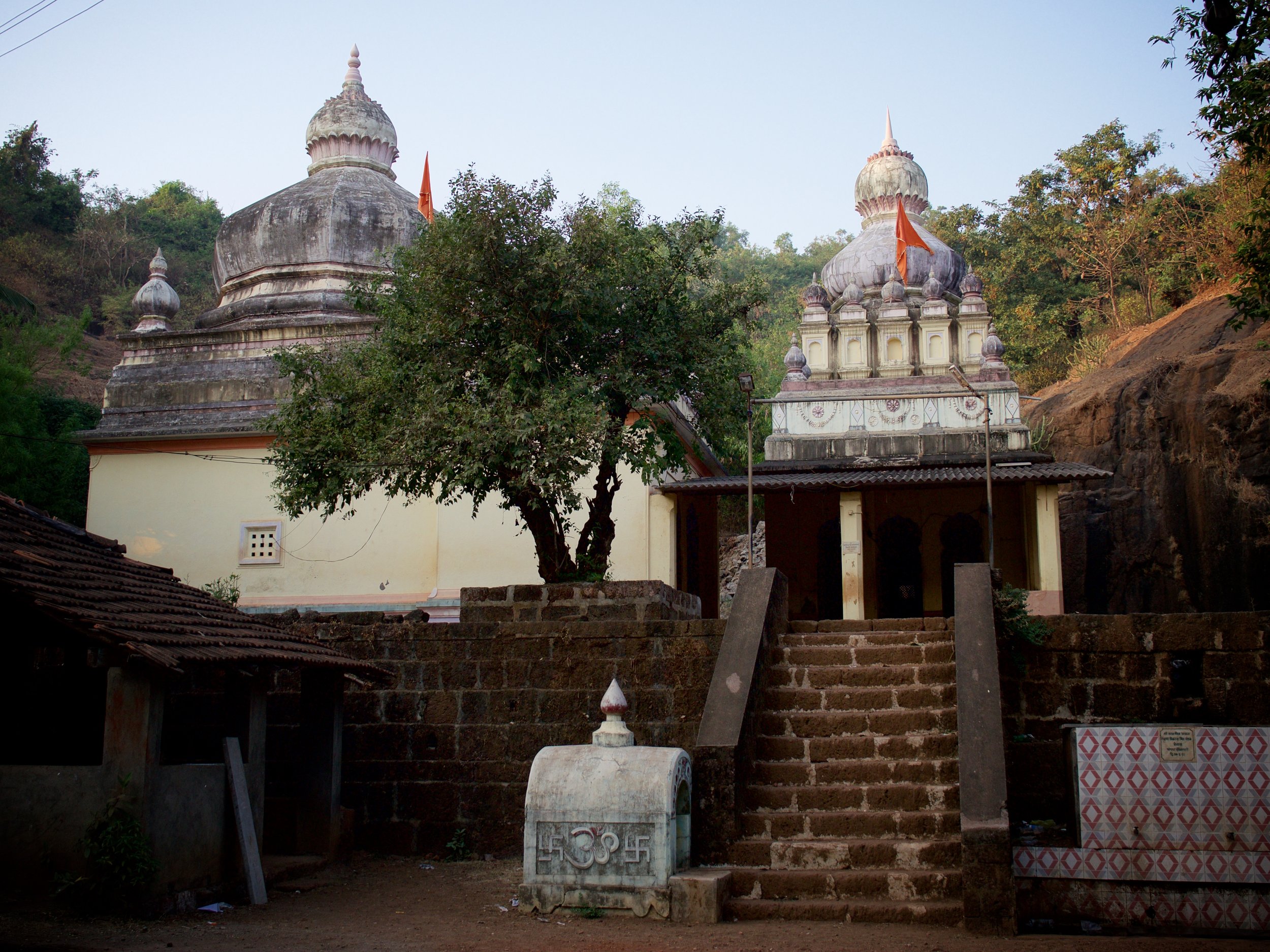
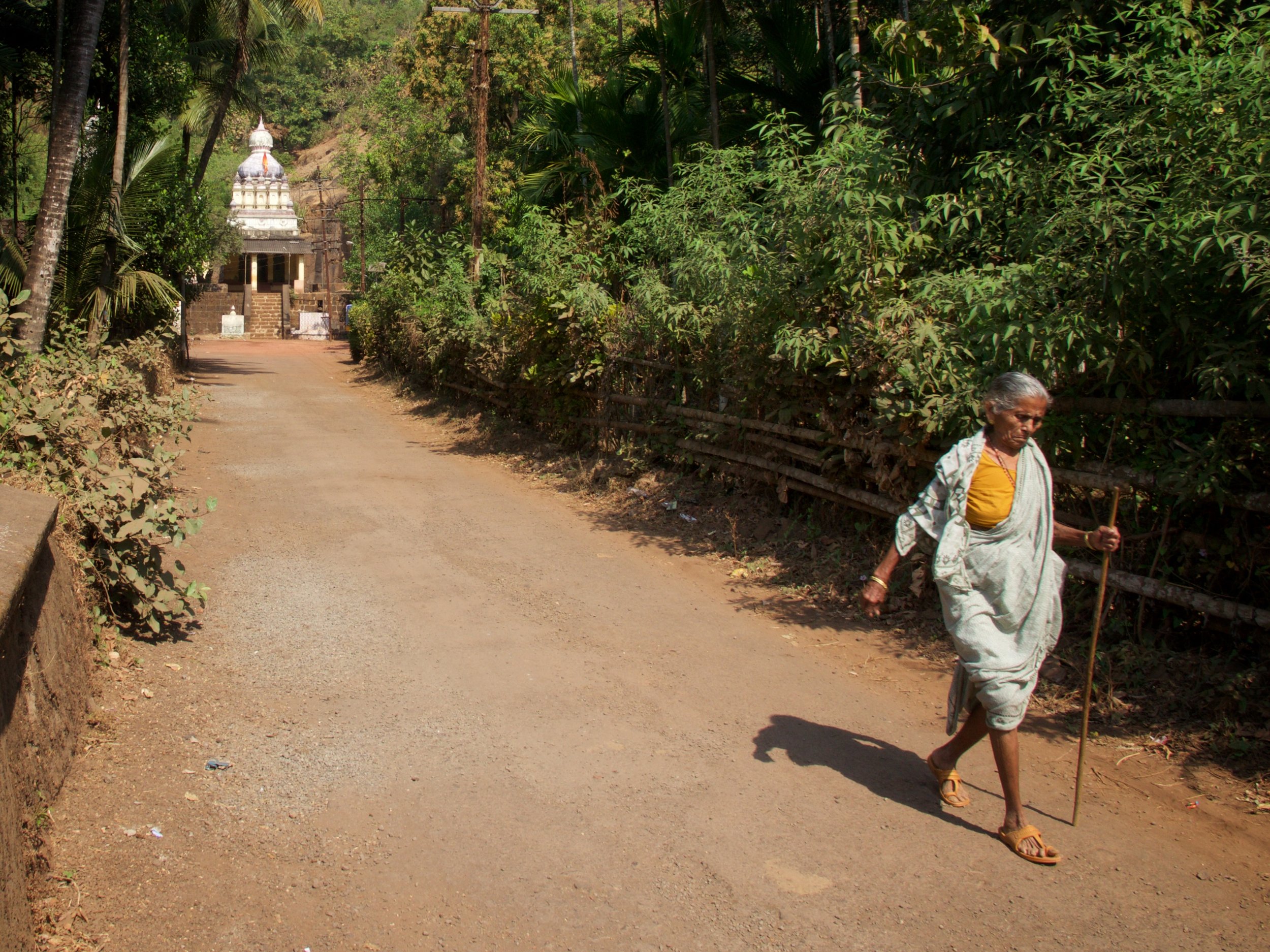
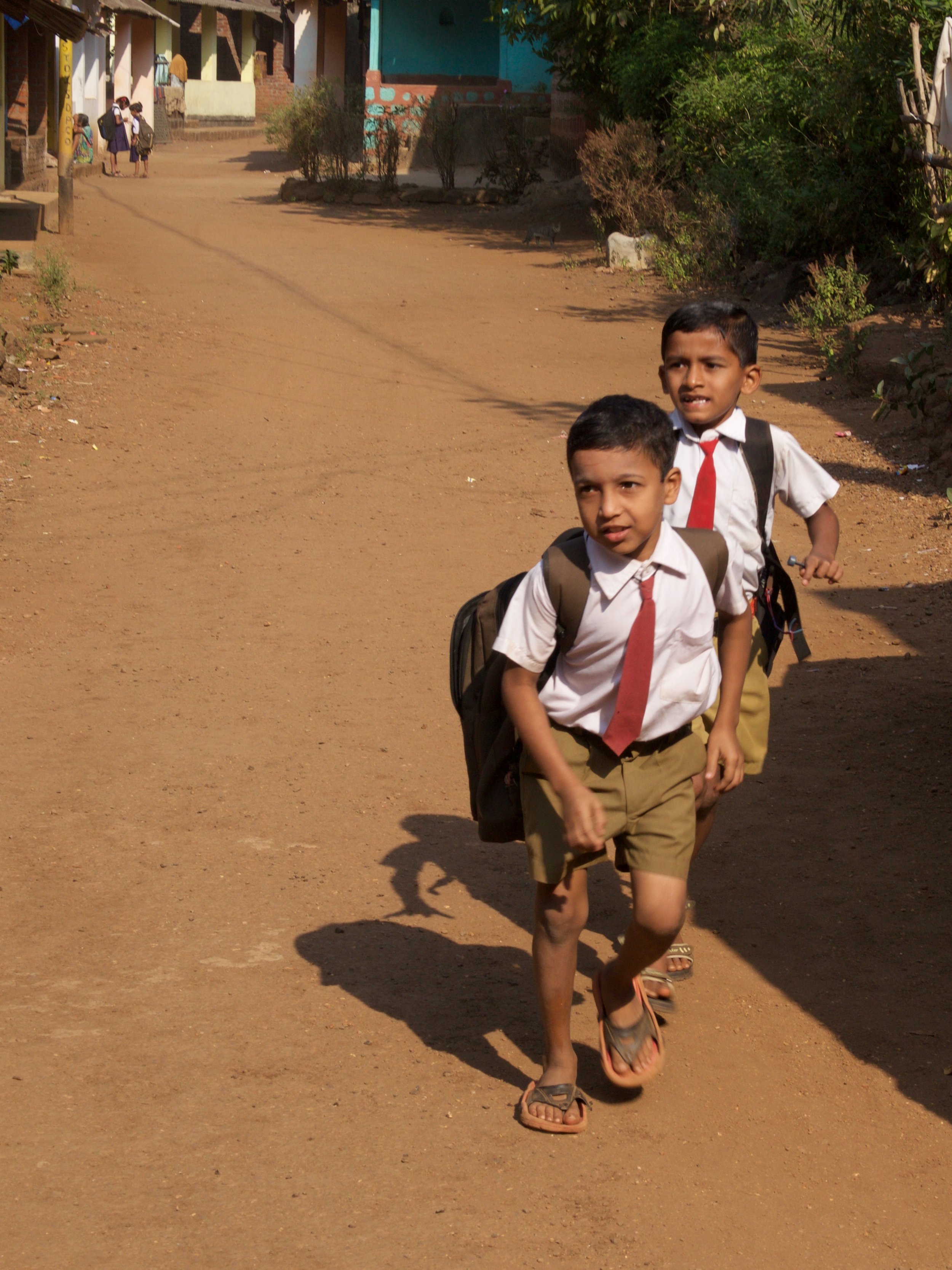

THE VELAS TURTLE FESTIVAL
We met up with Mohan Upadhye, a self-taught biologist, who is from the village and works with the local NGO, Kasav Mitra Mandal (KMM), and learned that the NGO, Sahyadri Nisarga Mitra (SNM), started the sea turtle conservation efforts in Velas in 2002, and now together with KMM they organize the annual turtle festival, which takes place between March and April when the turtle eggs typically hatch.
Female olive ridley sea turtles nest on the beaches of Velas between January and April, but the tourist attraction is not about the nesting turtles - it’s centered around the release of baby hatchlings as they embark on their new life into the ocean. Mohan and his enthusiastic crew spend the nesting season monitoring the beaches in order to keep track of the nest laying activities. But the team’s most important duty is to relocate the eggs to a protected hatchery because the nests are often laid in the very dynamic and unpredictable tidal zone.
Each freshly laid nest consists of an average of 100-120 eggs. After carefully being excavated they are taken to the hatchery and placed into a surrogate nest. For the next 2 months they will incubate in this safe haven, protected from the tides, dogs and human poachers.
During the festival attendees walk to the hatchery on the beach at dusk and dawn, and if hatchlings have surfaced Mohan and his team supervise their release making sure that every hatchling reaches the water’s edge on its own for the natal beach to become “imprinted” into the turtle’s biology. Strict rules are enforced: flash photography and handling of turtles are not permitted. Squealing for joy and amazement during the unique experience, (one that many say will stay with them for a lifetime) is however permitted! Audio-visual educational presentations about turtles and the conservation efforts are also held at Mohan’s home, which doubles as the NGO’s headquarters.
Mohan’s passion for the conservation of turtles is addictive and his knowledge about turtles together with his leadership qualities are certainly major contributing factors to the program's success. Velas' homestay business model and the Turtle Festival have not been replicated, but the hope persists to incorporate another 8 to 10 villages into a similar model. Mohan's primary concern was about the decline in the number of nests on his beach. On an optimistic note, he hopes that with more research the causes can be identified and the decline quickly reversed.
In the meantime, SNM remains strongly committed to the conservation efforts in the region and to the Velas Turtle Festival, as well as the homestay program. The NGO has even purchased some of the land behind the beach in Velas in order to prevent any development. As for adding more eco-tourist activities to the already adventure-filled destination that offers bird watching and stargazing - they are planning on creating some nature trails, and training locals to be nature guides.
Next we travel north and explore some of the exciting conservation efforts in Gujarat.
A fishing boat returns to port near Velas





